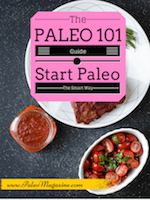Will A Paleo Diet Raise My Cholesterol? PLUS 5 Reasons Why Your Cholesterol Is Getting Higher
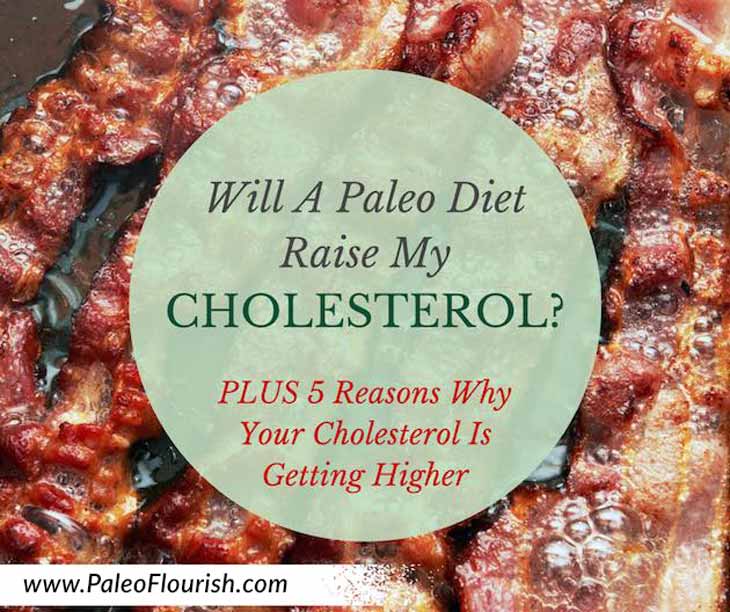
Bacon, Steak, Eggs, Coconut Oil, and more Bacon.
That sounds both delicious and like a recipe for higher cholesterol, right?
It’s natural to be worried that a Paleo diet will raise your cholesterol and make you more susceptible to heart disease. This article will walk you through everything you need to know to make your own decision about whether or not to be worried.
Will a Paleo Diet Raise My Cholesterol?
For most people, no.
Many people see their cholesterol go down significantly after starting a Paleo diet.
You won’t necessarily have the same experience, but it’s certainly possible, especially if you start losing weight. But there are some other things you should consider.
Want to try the Paleo diet? Join our Free 7-day Paleo challenge here.
First Consideration – What Time Was Your Blood Taken?
First of all, cholesterol varies a lot, even from day to day, and this is entirely normal. It’s not uncommon if you measure your cholesterol from one week to the next for it to vary between 20-30 points. So if you’re worried about any changes within that range, then bear in mind that your cholesterol might not have actually risen. It may have varied on the days you drew the blood.
Particularly for triglycerides, you want to measure them at the exact same time of day, and also at the same time after a meal, because triglycerides will vary a lot depending on whether or not you’ve eaten recently.
Second Consideration – Are You Losing Weight?
Another consideration is whether or not you’re losing weight. Many people who are losing weight will see a rise in their triglycerides and overall cholesterol. This is not true for everyone, but particularly if you’re deficient in micronutrients, or if you have decreased thyroid function, then losing weight will often cause your cholesterol and triglycerides to go up because your body may not be able to efficiently process and burn the fat that’s getting released by your body.
If you’re still worried that a Paleo diet will raise your cholesterol, then here are the 3 big questions you’re probably wondering about…
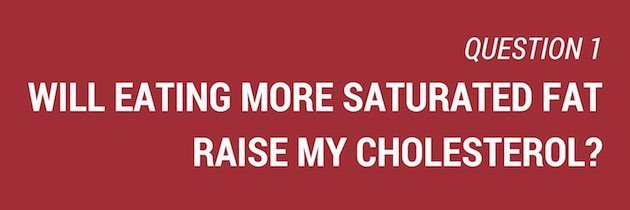
Question #1: Will Eating More Saturated Fat Raise My Cholesterol?
Probably not.
Most studies show that (on average) saturated fat does NOT increase blood levels of cholesterol.
In this post, Stephan Guyenet analyzed all of the biggest studies on the issue and found no correlation (in all but one of the studies) between saturated fat and blood cholesterol.
However, there are a small group of people who do experience a rise in cholesterol when they start eating more saturated fat. It’s not certain why this happens, but it does for certain people. Whether or not this is something to worry about is something covered by other parts of this article, but I do want to throw out there that it’s entirely possible.
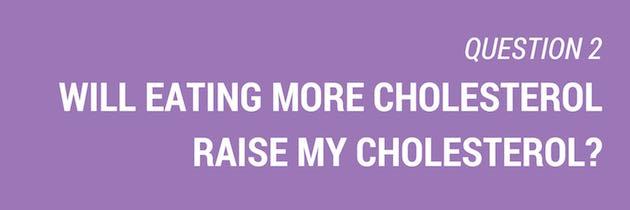
Question #2: Will Eating More Cholesterol Raise My Cholesterol?
Again, probably not.
On average, 70% of people don’t see any change in their blood cholesterol levels when they eat more cholesterol. And for the other 30%, they’ll see minor increases in both their LDL and HDL cholesterol, such that the ratio often improves. That’s what the vast majority of research on this issue says.
And for this reason, most countries (including Canada, Japan, Australia, the EU, etc.) have gotten rid of their recommendations to limit cholesterol in your diet, because they’ve found that the research doesn’t support that position.
Perhaps most importantly, your body produces 75-80% of the cholesterol in your body. And when you eat more cholesterol, your body starts producing less to compensate. Again, this won’t apply to 30% or so of people, but even in that 30%, the increase will be small and will raise HDL enough to normally keep the ratio the same.
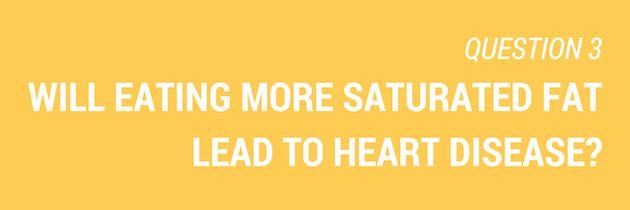
Question #3: Will Eating More Saturated Fat Lead to Heart Disease?
There’s no evidence whatsoever that this is true.
21 of the biggest and best studies conducted have shown no correlation between saturated fat intake and heart disease. And another huge study that followed 350,000 people found no correlation at all.
So even if you believe that eating saturated fat will raise your cholesterol, the best scientific evidence we have available shows that it won’t lead to heart disease.
5 Reasons For Why Your Cholesterol Is Getting Higher
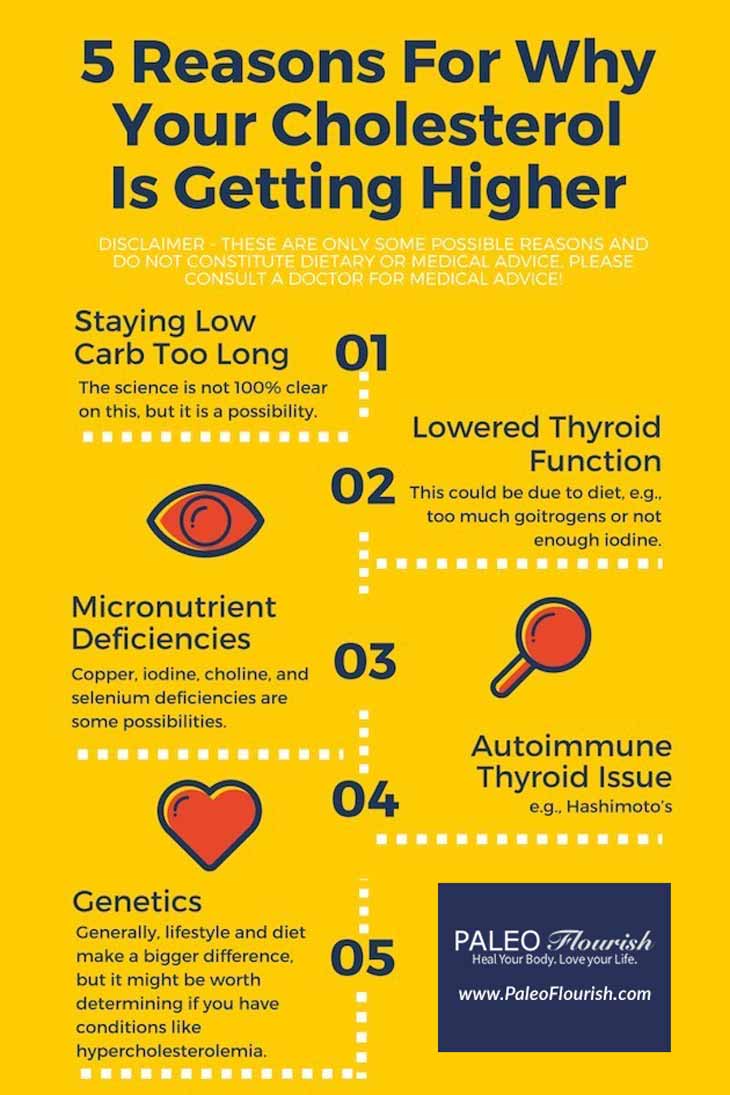
A Paleo diet isn’t likely to raise your cholesterol, but you could be doing certain things with your diet that may have caused your cholesterol to rise.
Here are 3 possible dietary causes for high cholesterol:
1. Staying Low Carb Too Long
The science is not 100% clear on this, but it appears that going very low carb for a long time might decrease the conversion of T4 to T3, which is the active form of thyroid hormone.
There are a number of studies that show that carbohydrate restriction (as well as calorie restriction) can lead to this problem. And in addition to the studies, there is a lot of anecdotal evidence of this.
What theoretically happens is that reducing your insulin too much prevents your body from converting enough T4 into T3. The reason this likely happens is because your body wants to conserve resources, and having more T3 generally encourages your cells to use the resources available (like energy and nutrients).
To be fair, there are many people who go low carb for a long time without experiencing any thyroid issues, so it does not appear that you’ll definitely get thyroid issues from being low carb for an extended period. However, if you’re already experiencing thyroid issues, it’s definitely something I’d experiment with – adding back in some clean carbs like sweet potatoes, white rice, and white potatoes.
Paul Jaminet has written extensively on this topic if you want to read more.
2. Lowered Thyroid Function Due to Diet
This is real and is something that everyone should look into if your cholesterol is rising.
Thyroid hormone is largely responsible for how well your LDL receptors function. And your LDL receptors are what allows your cells to remove LDL particles from your blood and use them (their contents – fats, cholesterol, vitamins) for various functions.
There are 2 main things related to your diet that can cause decreased thyroid function.
First of all, you might be eating a lot more goitrogens – things like Brussels sprouts, cauliflower, and turnips. In general, these foods aren’t a problem, but if you’ve already got lowered thyroid function, then they can decrease the production or activation of your thyroid hormone.
The other reason could be that you’re not getting enough iodine (which is a more common problem). Iodine is necessary for the proper functioning of your thyroid, and many of the foods that are highest in iodine like seafood and seaweed aren’t very popular in the United States.
Fortunately, both of these things can be easily fixed by either removing certain foods for a while or else increasing your intake of seafood or supplementing with iodine. For supplementation, however, it helps to consult someone on that point, because if you have any autoimmune thyroid issues, supplementing with iodine can often make it worse.
3. Micronutrient Deficiencies
Along with Lowered Thyroid Function, this is one of the biggest culprits of raised cholesterol.
Copper deficiency can be a very large contributor to both raised cholesterol (lipoprotein) and also cardiovascular disease. In this post, Stephan Guyenet goes through a lot of the evidence and reasons why copper deficiency leads to increased cholesterol and heart disease. And here’s another study showing that copper deficiency led to higher LDL levels.
In addition to copper, both iodine and selenium deficiencies can be causes of elevated cholesterol levels. The primary way this works is through the thyroid, which relies on both iodine and selenium.
Finally, choline deficiency can also lead to elevated LDL. Here’s an article where Paul Jaminet discusses this in depth.
As with any micronutrient deficiency, you should get tested for these deficiencies before trying to treat them, and it definitely helps to have someone help and guide you, since you’ll often need to add in more than one supplement. For instance, iodine often doesn’t help if you don’t also supplement with selenium.
Email us at [email protected] if you want suggestions as to how to go about this!
Diet isn’t the only thing that can cause high cholesterol, so here are 2 possible non-dietary causes of high cholesterol:
4. Autoimmune Thyroid Issue
The most common autoimmune thyroid issue is Hashimoto’s, although even if you don’t have a diagnosed case of Hashimoto’s, it’s still quite possible to have an autoimmune issue that’s affecting your thyroid.
I won’t address how to battle an autoimmune disorder in this article, but it definitely starts with diet. If you’d like our AIP Food List, then go to our sister website, Healing Autoimmune here.
If you order a full thyroid blood panel, make sure that it includes thyroid antibodies, so you can be sure whether or not your body is attacking your thyroid.
5. Genetics
Genetics are rarely determinative of anything. What I mean is that your genetics might make something more or less likely, but your lifestyle and diet usually play a bigger role in the end.
However, it’s worth knowing that if you have certain genetic traits like hypercholesterolemia, then you’re much more likely to have elevated cholesterol levels. That doesn’t necessarily mean you also have elevated levels of heart disease, but it does mean that you’ll have to approach these problems a little bit differently. I’ve also included a brief section below on hypercholesterolemia.
What About HyperCholesterolemia?
If you’re not familiar with this term, it’s a fairly uncommon genetic condition that leads to elevated cholesterol. The main way this happens it that the genes cause LDL receptors not to work well.
I don’t have an answer for this, and I haven’t seen anyone else have a great answer. My best suggestion is to limit your overall inflammation, mostly by eating a great diet and living a healthy life. If you can work with someone who knows what they’re doing, then they can often increase LDL receptor activity by using iodine, selenium, and/or thyroid hormones, but I would NOT recommend trying to do this by yourself. Find a professional who can guide and support you on this.
Email us at [email protected] if you want suggestions on how to find a good professional to help you!
General Suggestions for Rising Cholesterol
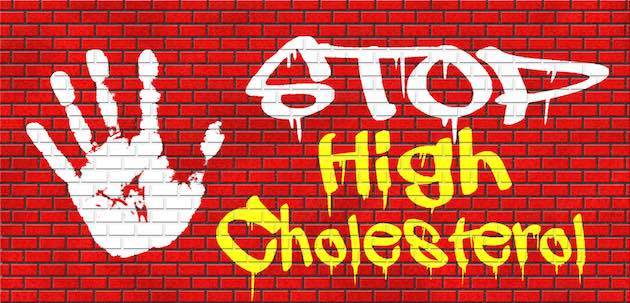
Remember, I’m not a doctor, so this advice isn’t specific to anybody, and if your doctor tells you something, I’m not trying to contradict that or say that you shouldn’t follow your doctor’s advice. There are too many situations to give suggestions that would apply to everybody.
However, if it were me, then here are some of the things I would do:
1. Thyroid Testing
I’d get a full thyroid panel. In particular, I’d want to make sure that it measures free T3, total T3, reverse T3, total T4, TSH, and thyroid antibodies.
If any of the numbers aren’t where they should be (check out this article for optimal ranges), then start working first on your thyroid. Because if you don’t have good thyroid function, LDL particles won’t be cleared well from your blood. I believe that most cholesterol issues can be traced back to a poorly functioning thyroid.
For more overall information on fixing your thyroid, start here.
2. Reduce Inflammation
So you’ve got high cholesterol. That may or may not be a bad thing. But it’s certainly a bad thing if you also have high levels of inflammation (even if it doesn’t show up on lab tests). Remember – inflammation is what causes LDL and other lipoprotein particles to actually accumulate in your arteries, so inflammation is the primary enemy here.
Start by eating a clean Paleo diet, sleep at least 8 hours a night, and find ways to destress.
3. Oxidized LDL Test and/or an Arterial Plaque Scan
If I was really worried then I would get one of these tests. An oxidized ldl test (which you can order online) will actually tell you how much of your cholesterol is being oxidized and likely starting to clog your arteries.
Even better, though, is an arterial plaque scan, which you’ll need to order through your doctor. This test will actually look and see how much plaque is building up in your arteries, which will tell you exactly how worried you need to be.
More Articles on Cholesterol Coming Soon
Watch out for 2 more cholesterol articles that will be published soon here – Is Cholesterol Bad For Me? and Does High Cholesterol Cause Heart Disease.
Want to try the Paleo diet? Join our Free 7-day Paleo challenge here.
Images: Copyright (c) kikkerdirk and krasyuk from Fotolia

